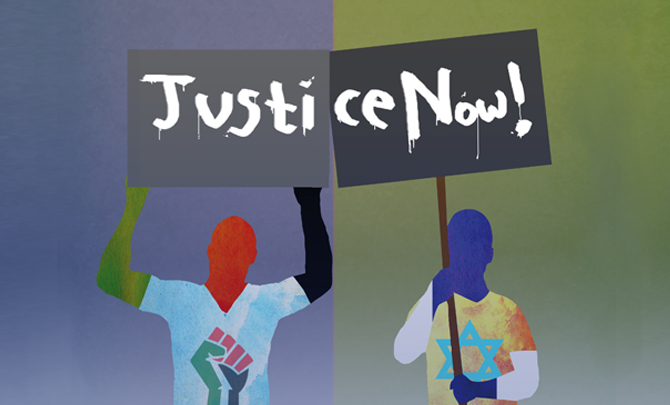A good question: Is it antisemitic to criticise Israel? - Reform Magazine
One question, four answers (extracts only)
 ELIZABETH HARRIS-SAWCZENKO
ELIZABETH HARRIS-SAWCZENKO
‘Jews identify strongly with Israel and its people’
Unless you’ve been living under a stone, you can’t help noticing that two words have come up time and time again in UK public discourse this past year: ‘anti-Zionism’ and ‘antisemitism’. There has been endless debate about whether you can be one without the other, where the line is crossed, and whether anti-Zionism is just the latest iteration of good old antisemitism, coupled as it has been in a number of high profile cases with antisemitic tropes and stereotypes.
Obviously, criticism of Israeli government policies is not necessarily antisemitic. There are many Jewish critics of Israeli government policies, both inside and outside the country. There always have been and there always will be. This is a sign of a living, breathing democracy. I myself am a trustee of the Abraham Fund initiatives, a Jewish-Arab organisation that promotes equality for Muslim and Christian Arab citizens of Israel through promoting positive social change to bridge gaps, whether in the political, social or economic sphere…
Elizabeth Harris-Sawczenko is Director of the Council of Christians and Jews
___
 ROBERT COHEN
ROBERT COHEN
‘Israel is not above history and politics’
I can fully understand why many readers of Reform might feel reluctant to criticise Israel and why some may even think it antisemitic to do so. It’s important to be mindful that much of Jewish-Christian history has been tragic and indeed genocidal in its outcome for the Jews. And there’s also to be considered 70 years of brave and determined Jewish-Christian interfaith dialogue since the Holocaust which risks being undone through criticism of Israel.
But criticise Israel you can and you should, as human beings and as Christians. Here’s why.
It’s vital to understand that the Israeli/Palestinian dispute is not a conflict between equals. Far from it. Neither is it a religious conflict, although some Jews and some Christians like to think it is. It’s not even a nationalist conflict, at least not since 1948. Over the last 70 years, Israel-Palestine has become a conflict over human and civil rights – those that have them and those that don’t…
Robert Cohen is a Jewish UK blogger on Israel/Palestine
 DAVID ELMS
DAVID ELMS
‘Israel has a right to live in its land’
There are few political topics as emotive as the Middle East. Amid the Syrian war and the rise of Isis, some see Israel as the root cause of all the difficulties while others see Israel as the model of hope for peace and democracy in the region. These polarised positions are seen in the Church, in the form of Christian Palestinianism and Christian Zionism, with many shades of opinion within the two camps.
Christian Palestinianism is an expression of replacement theology, a school of thought which emerged from the time of Augustine and taught that the Church replaced Israel in God’s purpose. Replacement theologians see the emergence of modern Israel as a chance event, with no spiritual significance.
Liberation theology is the contemporary paradigm for Christian Palestinianism, viewing Palestinians as the oppressed and Israel as the oppressor. This model is seen in the current BDS (Boycott Divestment and Sanctions) campaign, which seeks to delegitimise Israel, and boycott certain Israeli goods. Conversely, there is little condemnation of any Palestinian action (even terrorism), as this is seen as part of the liberation process…
David Elms is the UK Director of The International Christian Embassy Jerusalem
___
 CHARLOTTE MARSHALL
CHARLOTTE MARSHALL
‘We seek equality through justice’
Many UK Christians feel confused about the Israeli/Palestinian conflict. Is it a conflict about land? Or religion? Or human rights? How can we seek a just peace that acknowledges the pain, suffering and desires of one population without trampling on the rights of another?
Someone once defined antisemitism simply as hatred of Jews because they are Jews. This seems clear enough, and any such sentiment should of course be rejected by all Christians. But how should we respond to the notion of Israel as a ‘Jewish homeland’ – a place that has now become central to how many Jews worldwide understand their Jewish identity? In this context, it is understandable that criticism of Israel, as ‘the Jewish state’, may be perceived by some as antisemitic…
Charlotte Marshall is the Advocacy Worker for Kairos Britain
___
This is an extract from the February 2017 edition of Reform.














Submit a Comment